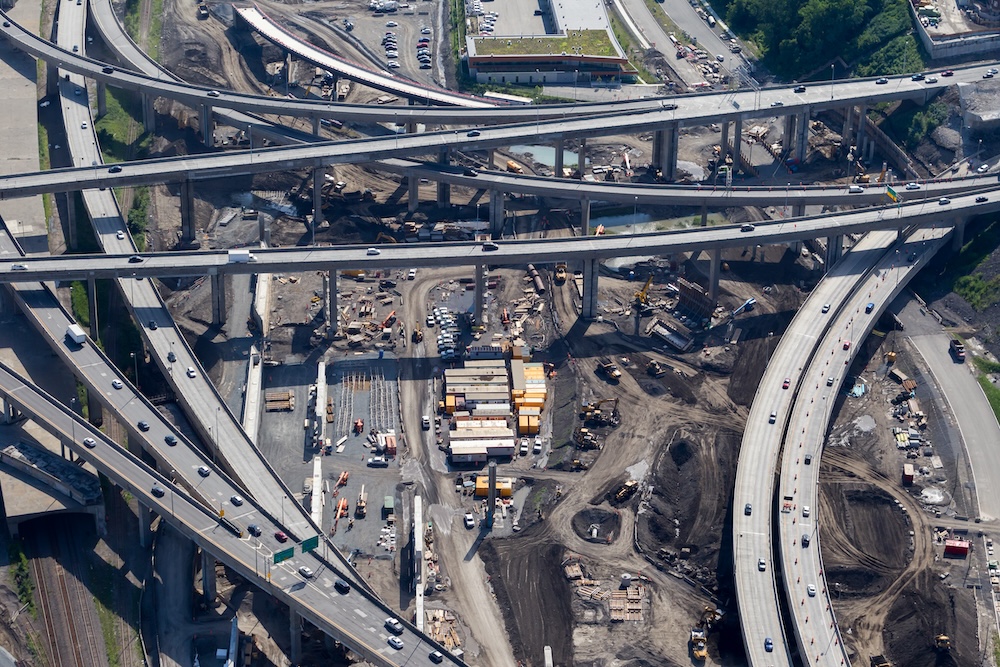Related Articles
— 4 min read
What is an RFQ in construction?



Last Updated Aug 19, 2025

Kristen Frisa
Contributing Writer
114 articles
Kristen Frisa is a contributing writer for Procore. She also contributes to a variety of industry publications as a freelance writer focused on finance and construction technology. Kristen holds a Bachelor of Arts in Philosophy and History from Western University, with a post-graduate certificate in journalism from Sheridan College. She lives in Ontario, Canada.

Ashley Greybar
Senior Marketing Manager
Ashley Greybar is the Senior Marketing manager at Outbuild. Ashley is a specialist in bringing products to market that make it easier for teams to manage projects and comply with construction safety regulations and quality specifications. She is passionate about advancing technology within the construction industry and simplifying complex processes for general contractors, owners, and specialty contractors.

Daniel Gray
Contributing Writer
33 articles
Daniel is an educator and writer with a speciality in construction. He has been writing construction content for Procore since 2022, and previously served as a Procore Content Manager before continuing to pursue an education career as an Assistant Headmaster for Valor Education in Austin. Daniel's experience writing for construction — as well as several clients under an agency — has broadened his knowledge and expertise across multiple subjects.
Last Updated Aug 19, 2025

In construction, the term RFQ is used to mean both a request for qualifications and a request for quote.
In Canada, particularly in public procurement processes, RFQs are a common method used by government agencies and large corporations to prequalify contractors for infrastructure projects.
Project owners use a request for qualifications (RFQ) to narrow down a list of contractors to find those who meet the criteria to tender on a specific project.
General contractors use a request for quote (RFQ) during the change order process to determine the specific cost of a required change. This terminology is most common in change management software, when owners request pricing from general contractors or GCs request pricing from specialty contractors. Some contractors don’t use a formal term for this type of request, which is often simply referred to as “getting pricing.”
In this article, we’ll take a closer look at requests for qualifications, which is the most common usage of the term RFQ in the construction industry. We’ll talk about how RFQs are used, what’s typically included in an RFQ, and how RFQs compare to other types of construction requests.
Table of contents
What is a request for qualifications (RFQ) used for?
Project owners use a request for qualifications to prequalify a shortlist of potential contractors for a specific project.
For example, large public infrastructure projects in Canada — like the Lakeshore East-West Corridor Expansion project or the Gordie Howe International Bridge — often use the RFQ process to make sure that contractors have the experience, financial stability and resources to handle such complex developments.
Project owners use a competitive tendering or proposal process to try to secure the best price for a project. That said, owners also need to ensure that the contractors they partner with have the right experience and team to complete the project. For that reason, many owners on both public and private projects use RFQs to narrow down a list of potential contractors — so that only qualified contractors are eventually awarded the project.
Contractors respond to RFQs with a statement of qualifications (SOQ), which enables owners to determine which contractors meet the criteria required to successfully build the project.
An RFQ is often the first step in two-stage procurement. In the second step, owners will issue a request for proposal (RFP) to qualified contractors.
In other cases, a project owner may select a general contractor simply on the basis of their SOQ. This happens most commonly on public projects with a set budget and a guaranteed maximum price (GMP) contract.
What to Include in an RFQ
The information required in an RFQ will vary from project to project, and the most important thing is that contractors make sure to include all of the requested details.
Some of the most common information requested on RFQs includes:
- List of team members who will take part in the project
- Portfolio demonstrating past experience with similar projects
- Intended approach to the upcoming project, including details about construction methods, materials and potential obstacles
- Safety information, like ratings, scores and safety plans
- Financial information, like cash flow statements or balance sheets
- Proof of bonding or insurance, which could include tender bonds, performance bonds and general liability insurance
- References from relevant contacts, like past project owners, architects, city officials, developers, or other contractors
All of the requested information will go into a contractor’s statement of qualifications, which they’ll submit to the project owner to get prequalified to tender on the project or submit a proposal.
RFQ vs. RFI and RFP – What’s the difference?
While an RFQ is an important document in construction, it is far from the only one. In fact, the catch-all term RFX stands for “request for X” since there are so many different types of requests in construction. Some of the most common requests include requests for proposals (RFP) and requests for information (RFI).
| RFQ | RFP | RFI | |
|---|---|---|---|
| Meaning | Request for qualifications | Request for proposal | Request for information |
| Purpose | Gather details about a contractor’s qualifications to work on a specific project | Solicit contractor proposals about methods and costs to build a specific project | Clarify information about project details, including aspects of documents like specs, drawings or agreements. |
| Phase | Preconstruction | Preconstruction | Preconstruction and construction |
In the Canadian construction sector, public procurement often starts with an RFQ to ensure that only prequalified contractors participate in the RFP phase. For example, Infrastructure Ontario, which manages the province's public assets, uses a two-stage RFQ-RFP process for selecting contractors for public infrastructure projects. On the other hand, smaller private projects might combine the RFQ and RFP process into a single step, especially in the residential sectors.
During preconstruction, owners use RFPs to solicit proposals from potential contractors for a specific project. The RFP process has the goal of selecting a general contractor, which eventually leads to contract negotiation and project buyout.
Throughout a project, contractors and other project team members use RFIs to ask questions about specifications, drawings or agreements. For example, an RFI may seek to clarify a detail in one of the construction drawings, identify a potential design problem or resolve an ambiguity in the specifications.
There are many other names for requests in construction — like requests for tender or change — that help everyone involved understand the specifics of a project during each phase of construction.
Categories:
Written by

Kristen Frisa
Contributing Writer | Procore
114 articles
Kristen Frisa is a contributing writer for Procore. She also contributes to a variety of industry publications as a freelance writer focused on finance and construction technology. Kristen holds a Bachelor of Arts in Philosophy and History from Western University, with a post-graduate certificate in journalism from Sheridan College. She lives in Ontario, Canada.
View profile
Ashley Greybar
Senior Marketing Manager | Outbuilld
Ashley Greybar is the Senior Marketing manager at Outbuild. Ashley is a specialist in bringing products to market that make it easier for teams to manage projects and comply with construction safety regulations and quality specifications. She is passionate about advancing technology within the construction industry and simplifying complex processes for general contractors, owners, and specialty contractors.
View profile
Daniel Gray
Contributing Writer
33 articles
Daniel is an educator and writer with a speciality in construction. He has been writing construction content for Procore since 2022, and previously served as a Procore Content Manager before continuing to pursue an education career as an Assistant Headmaster for Valor Education in Austin. Daniel's experience writing for construction — as well as several clients under an agency — has broadened his knowledge and expertise across multiple subjects.
View profileExplore more helpful resources

2026 Forecast: 5 Construction Trends That Will Lead to True Tech Transformation
I was walking a job site recently with an old friend—a superintendent I’ve known for years. He pointed at a table cluttered with iPads and phones and gave me a...

Agentic AI as a Capacity Multiplier: Why Construction Leaders Are Hiring “Digital Employees”
It’s not every day you see Procore, CMiC, and EllisDon sharing the same stage. But frankly, the topic demanded it. In a recent webinar hosted by On-Site Magazine, we joined...

The 5 Key Types of Construction Contracts
There are five common types of construction contracts: lump sum (or fixed price), time and materials (T&M), unit price, guaranteed maximum price (GMP), and cost-plus. Each of these contract types...

Time and Materials (T&M) Contracts in Construction: Guide for Contractors & Project Owners
A time and materials (T&M) contract is a construction agreement where the project owner pays the contractor for all material and labour costs on a project as well as contractor...